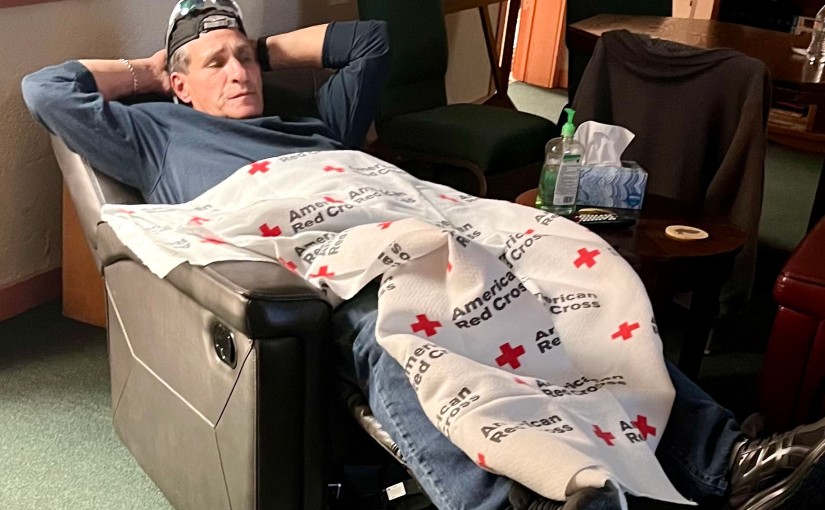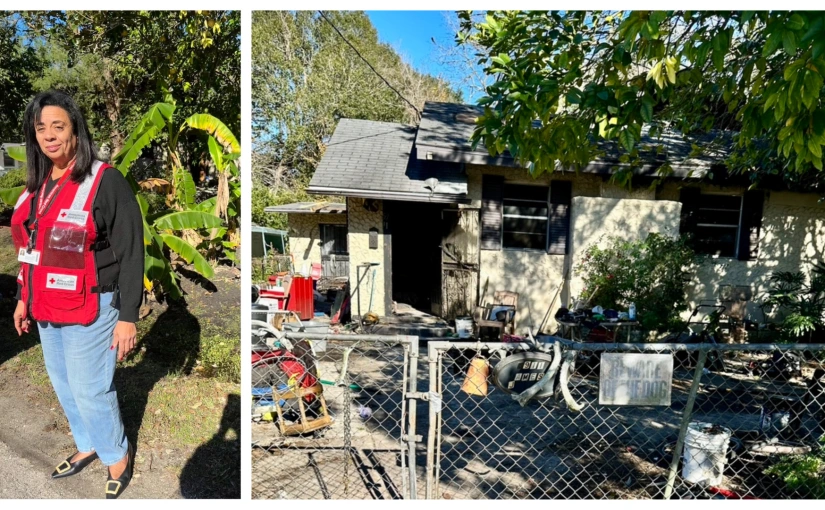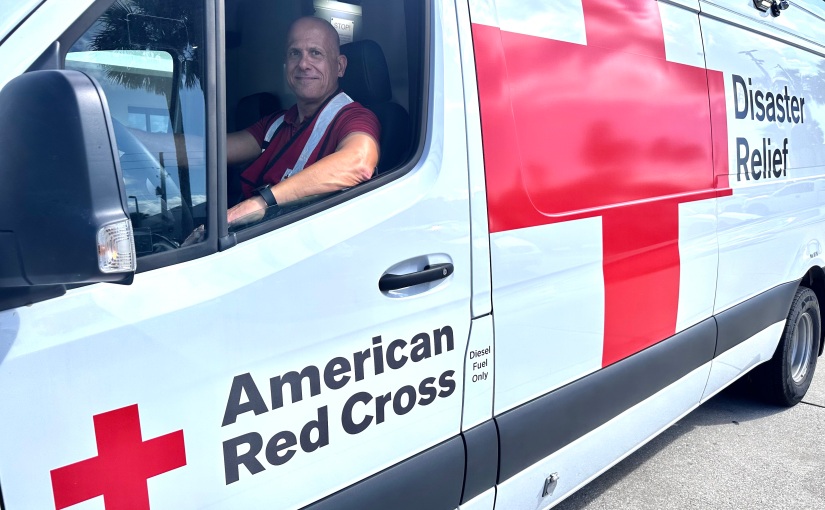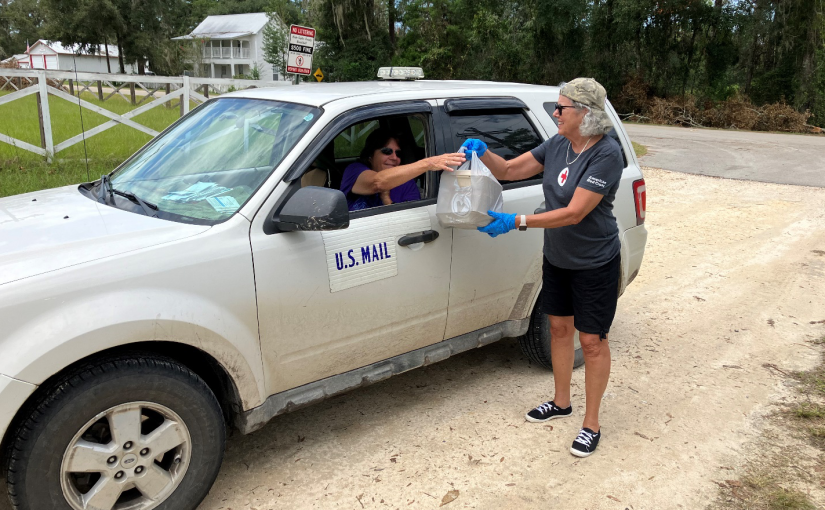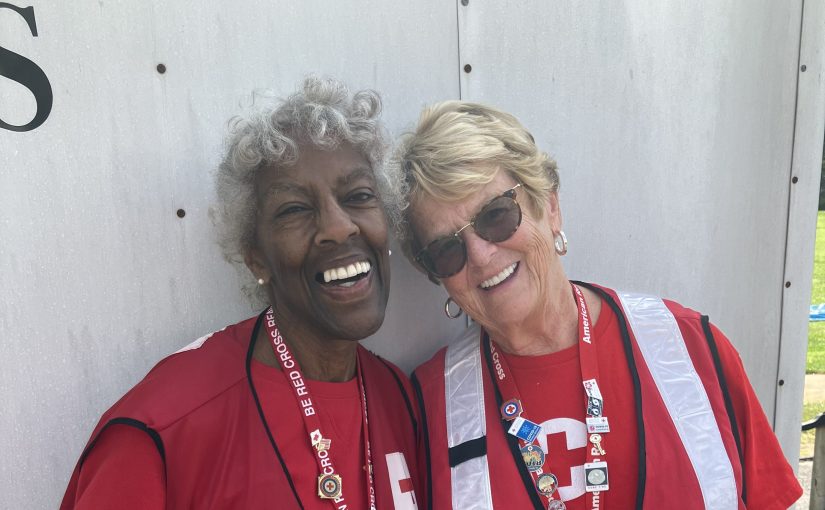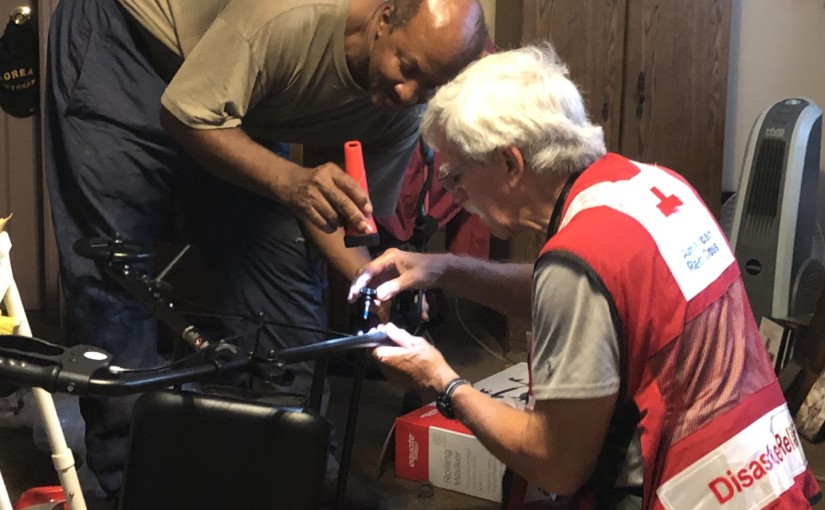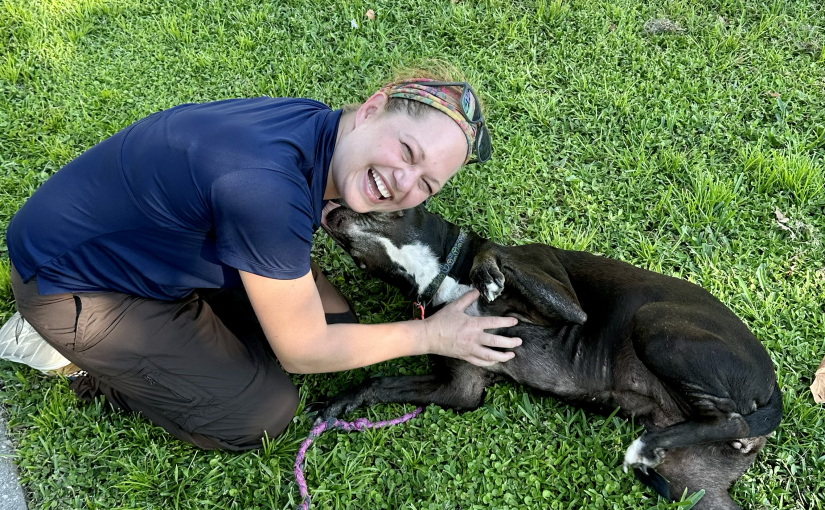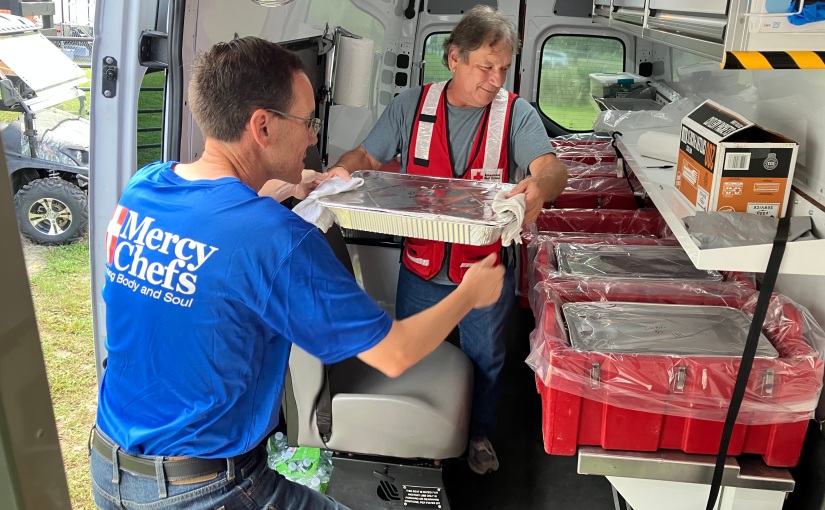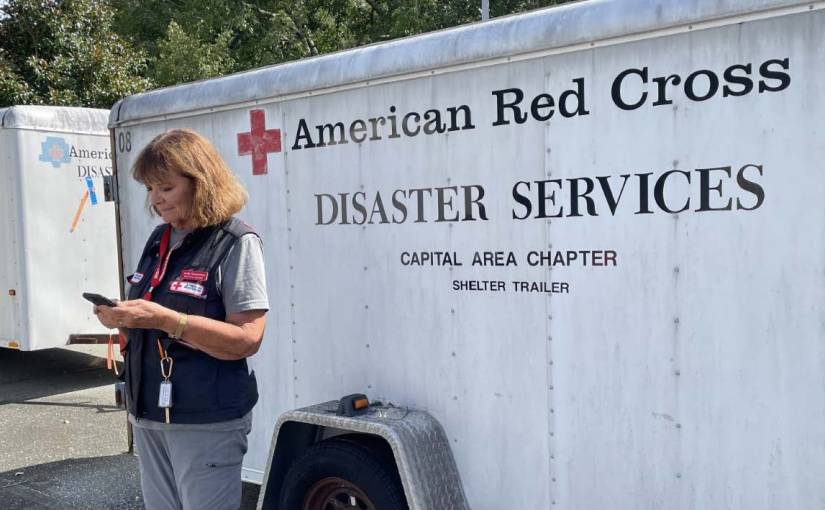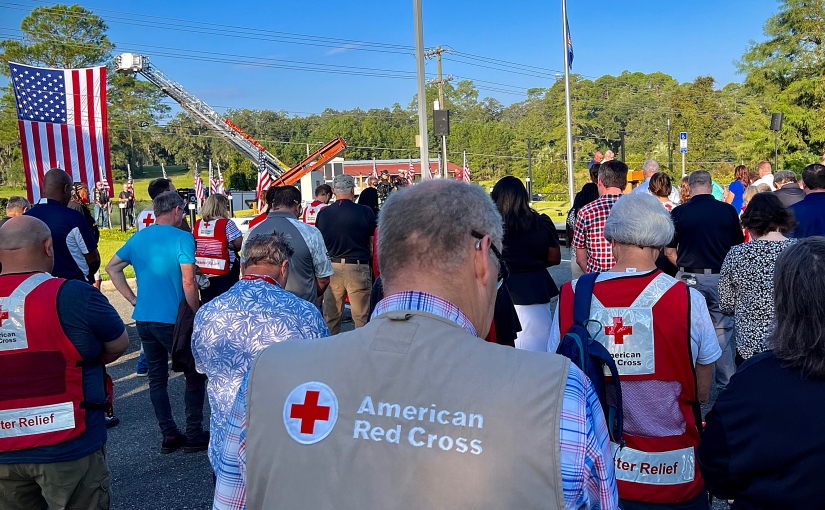When Roy Splitgerber woke up about six in the morning of January 9th after falling asleep on the couch watching a movie, he heard a bunch of crashing outside.
“I didn’t know what was happening! All of a sudden, my roof was ripped off along with a wall being torn away from the condo. Wind traveling about 160 mph came right through the back of my house, over to the [Legendary Marine] marina.”
Roy relived his tornadic experience that occurred in the Panama City Beach area on January 9th when an EF-3 tornado decimated the two-story condo he and his roommate started renting about three weeks ago. Now he shares an American Red Cross shelter at the Gulf Beach Presbyterian Church after the tornado completely destroyed the condo.
Although he had heard about the Red Cross, the 59-year-old says this is his first time in a shelter.
“I didn’t understand at first all that the Red Cross does, but now I do. They have provided me a place to stay, food to eat and is helping the best they can, along with Bay County, to help me find a place to live. The Red Cross is great, and the volunteers are nice people!”
Roy, who has lived in the area for the past 50 years, says he’s experienced hurricanes but never a tornado. “With hurricanes, you can pretty much figure out where they are and what to expect. With tornadoes, sometimes you know and sometimes you don’t. It was mentioned the night before about a tornado but I thought it would hit someplace else. I never expected it would hit me directly.”
Roy adds he’s still in shock from the tornado which struck with less than a 10-second warning and was over in about 20 seconds. He was on the second floor of the condo when it happened. “The tornado, which was very horrific, lifted me a few feet off the floor! It was a rude awakening without a cup of coffee. I am glad that I survived it.”
Roy went back a couple of days later to the destroyed condo to salvage what he could. “I was able to find a few personal items including my phones, chargers, a hamper of dirty clothes and my tools that I use in my job as an electrician and in construction. I also found chunks of asphalt and pieces of boats that blew into the building during the storm.”
Because Roy recently moved into the area, he doesn’t know many of his neighbors whose homes were still intact, noting, “They were missing things like shingles from the roof of their homes or garages, but most of their homes are still standing. My roommate has friends in the area so he’s staying with them.”
Roy feels lucky to be alive and praises the Red Cross for their help.
“I have a long road to recovery; it may take a while, but I will make it. I am very appreciative of the Red Cross which is truly a blessing.”
Written by Phyllis Bell-Davis

